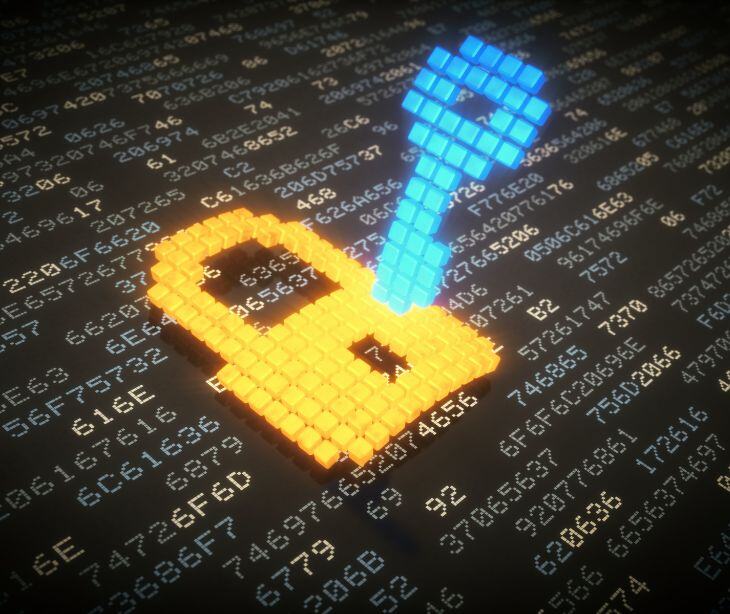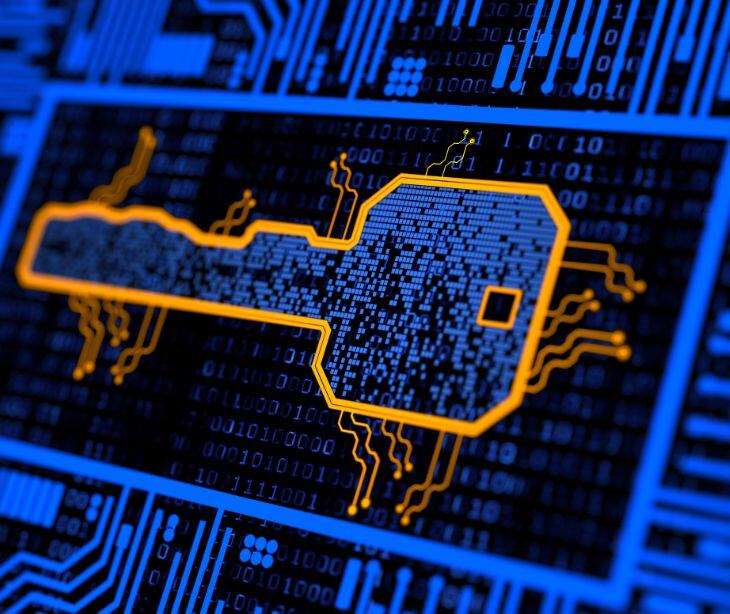
DKIM 2048 is an email authentication method that uses a 2048-bit encryption key to verify the legitimacy of a message's sender and safeguard against email tampering and spoofing.
What is DKIM 2048?
Based on a Usenix study on DKIM employment, “DomainKeys Identified Mail (DKIM) is an email authentication protocol to protect the integrity of email contents.”
DKIM 2048 is an improved version of the DomainKeys Identified Mail (DKIM) email authentication standard that employs a 2048-bit encryption key for stronger security. Its primary purpose is to thwart email spoofing by verifying that messages genuinely come from the claimed domain.
When a sender dispatches an email, their server uses DKIM to create a digital signature using a private key, which the domain owner securely stores. This signature is added to the email header.
The corresponding public key, which matches the private one, is made publicly available through the sender's DNS records. When the recipient's server receives the email, it fetches the public key from the DNS records and uses it to verify the signature.
If the signature matches, the recipient's server knows the email hasn't been altered during transit and that it indeed originated from the claimed domain. The use of a 2048-bit key ensures a higher level of encryption than older standards, making it harder to forge or tamper with emails.
See also: How to set up DKIM and SPF records
The benefits of using DKIM 2048
- Prevention of email spoofing: By verifying that an email truly comes from the claimed domain, DKIM 2048 helps prevent email spoofing, which protects users from phishing attacks and other fraudulent emails.
- Improved email deliverability: Many email providers are more likely to deliver emails to the inbox instead of the spam folder when they pass DKIM checks, improving the deliverability of legitimate emails.
- Preserved message integrity: With DKIM 2048, recipients can be confident that the email content hasn't been altered in transit, maintaining the original message integrity and ensuring reliable communication.
- Increased trust: For organizations, using DKIM 2048 signals a strong commitment to secure email practices, which can boost the credibility of their communications with customers, partners, and stakeholders.
- Seamless compatibility: DKIM 2048 integrates well with other security standards like SPF (Sender Policy Framework) and DMARC (Domain-based Message Authentication, Reporting & Conformance), creating a more comprehensive email security strategy.
See also: HIPAA Compliant Email: The Definitive Guide

How is it different from other forms of DKIM?
DKIM 2048 differs from other forms of DKIM by using a 2048-bit encryption key, which substantially improves security over older standards that often use shorter keys, like 1024-bit or 512-bit.
Shorter keys, while faster to process, are more vulnerable to brute-force attacks and can be cracked more easily by cyber criminals. With DKIM 2048, the longer key length makes signature encryption much more secure, providing a stronger defense against email spoofing and signature forgery.
DKIM 2048 complies with the latest recommendations for key length from email security experts, offering future-proofing against emerging threats. This is necessary as computational power continues to grow, making older encryption keys obsolete. It reduces the risk of forged or altered emails.
The practical application of DKIM 2048
Starting in 2024, Google has updated its guidelines specifically email senders targeting personal Gmail accounts (ending in @gmail.com or @googlemail.com) must adhere to updated guidelines for smooth delivery. These rules ensure that emails don't end up in spam or get blocked.
For all email senders, key requirements include using TLS connections for secure transmission and implementing Sender Policy Framework (SPF) and DomainKeys Identified Mail (DKIM) authentication protocols to confirm the sender's legitimacy.
DKIM keys must be at least 1024 bits long, with 2048-bit keys recommended for stronger security. Domain-based Message Authentication, Reporting, and Conformance (DMARC) helps instruct receiving servers on handling unauthenticated messages, preventing spoofing, and allowing monitoring through reports.
Additional guidelines include maintaining accurate email headers, providing a one-click unsubscribe option for recipients, and using clear sender information. Shared IP addresses should have a clean reputation, while domain PTR records (reverse DNS) must align with the sending server's IP address.
See also: Top 12 HIPAA compliant email services
FAQs
Is it compatible with other email security standards?
Yes, DKIM 2048 works seamlessly with other email security standards like SPF and DMARC for comprehensive protection.
Can anyone set up DKIM 2048?
Yes, most domain providers support DKIM 2048, and email senders can implement it to strengthen email security.
Does using DKIM 2048 slow down email delivery?
The signing process is usually fast, and any potential delay from the increased key length is minimal.
Can I use DKIM 2048 with multiple sending domains?
Yes, you can generate separate DKIM keys for each domain and configure them accordingly.
Subscribe to Paubox Weekly
Every Friday we'll bring you the most important news from Paubox. Our aim is to make you smarter, faster.



